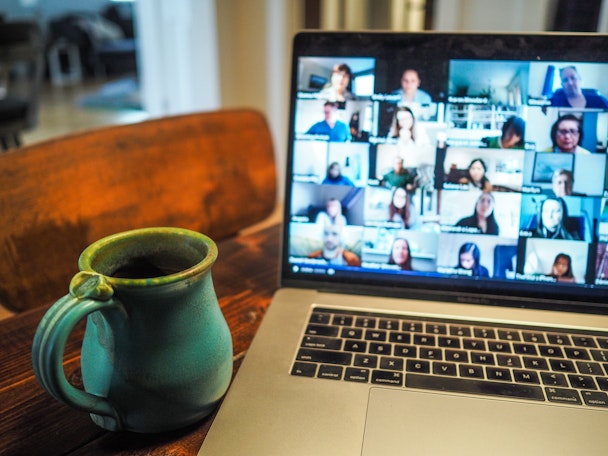Stop arguing about Malcolm Gladwell’s home working comments. We’re all missing the point
In a recent interview with Stephen Bartlett, Malcolm Gladwell expressed firm reservations about the trend for home working. A (perhaps surprisingly) vociferous backlash proves that people still care deeply about the issue, and their own opinions are pretty strong too. Charli Edwards, creative director at agency LoveThat, tells us that everyone’s missing the point: whether at home or in an office, what matters is building trust and making your employees care.

Charli Edwards of LoveThat tells us that the recent media storm around working from home misses the point
It’s simply not about working from home v office. It’s about culture and whether yours contributes to employees’ welfare or not.
Your workforce’s investment in your vision requires trust. That’s it. It requires a backbone of authentic, transparent communication and expectations, all stemming from your business goals. If your culture doesn’t support that, then it doesn’t matter how many pizza Fridays you facilitate, your team won't give a rats about what they’re doing or why they’re doing it. And it certainly won't inspire them to work harder, from home or from the office.
Anybody can not really care, anywhere.
The disconnect
Hiring is harder than ever; staff turnover in some businesses is now a monthly meeting. Even with the prospect of a recession, a recent McKinsey study found that 40% of people quit their jobs without finding new ones; 60% would consider quitting without a job.
As a result of the pandemic, work demands have increased. Burnout is prevalent everywhere, and while working arrangements during the epidemic raised hopes for flexibility, according to ONS data, fewer than 20% of UK employees work in businesses that plan to use homeworking as a business model.
In general, employees' expectations don't match employers' understanding of the situation. The fact that 70% of people describe their subjective financial situation as "living comfortably" or "doing alright" is unsurprising.
At work, do psychological needs matter more than material ones? We no longer have to choose between having children or having a career, we can have both. If businesses don’t offer employees flexibility, then they're going to lose out. Hybrid working and remote positions are allowing people to have their cake and eat it. More importantly, they’re not afraid to make the change if the terms of their employment just aren’t working for them.
Where are your deepest investments?
This is not about geography. Are the people working for you invested in working for you – and are you equally invested in them? Does the level of flexibility in your company culture allow for different work styles? Does it encourage productivity? Does it inspire excellence? As I’ve said, people can ‘not care’ anywhere, but they can be excellent anywhere too.
Does your business make people feel their contribution matters, no matter where they work from? Do your people put in the effort? Do they belong to something bigger than themselves?
It’s not about the pandemic anymore, it’s about people. Some work to live; some live to work. I love what I do, I want to do it, and if I didn’t want to I wouldn’t. It really is that simple. One reason I love what I do is because I am part of a business where I feel valued. My contribution to the bigger picture matters. We have processes in place to avoid burnout; hybrid working is here to stay; flexing between WFH and the office allows me to safeguard my working habits and give my team boundaries for safe working.
No more excuses
Using WFH vs office to justify negative performance is bullshit.
There are so many tools that aid contribution and collaboration. For location to be a blocker or a catalyst to creativity is an excuse.
People leave when they are socially disconnected from an organisation. The most powerful thing that a person can have is a reason why. Creativity, for many of us, is about forming that emotional connection between businesses and audiences.
If you’re not building that connection firstly with your employees, no amount of remote working or mandatory office days are going to help you address that. Give your people a reason why.
Content by The Drum Network member:

Cavendish Consulting
Creativity that counts.
Creativity is your secret weapon. It can educate, challenge and motivate. It can turn ordinary into extraordinary, and your audiences...

